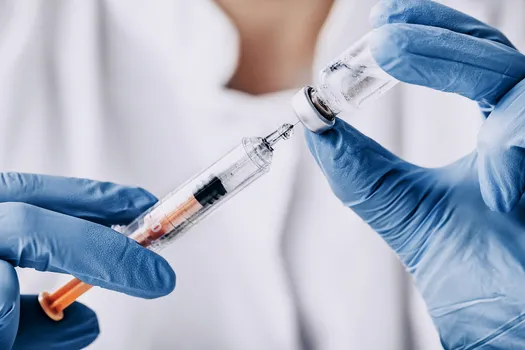
Scientists in the United Kingdom studied the health records of about 20,000 people, mostly in the United States, according to a non-peer reviewed study published in medRxiv.
The study confirmed that vaccination greatly lowers a person’s risk of death, ICU admission, and health problems such as respiratory failure, the need for oxygen treatment, psychotic disorders, and hair loss in breakthrough cases.
“On the other hand, previous vaccination does not appear to be protective against several previously documented outcomes of COVID-19 such as long-COVID features, arrhythmia, joint pain, type 2 diabetes, liver disease, sleep disorders, and mood and anxiety disorders,” the study said.
Two doses of an mRNA vaccine offered much more protection than one dose, the study said. It noted that the finding about long COVID is concerning because of the burden suffered by people who have it.
Age seems to play a big part in how much a person benefits from a vaccine. People under age 60 received “large and robust” protection from vaccines, whereas the protection for people over 60 was “smaller and not statistically robust,” the study said.
That’s an important distinction because older people “are at higher absolute risks of most adverse outcomes after infection,” the study said.
Researchers wrote that the public should not forget that vaccines help protect people from getting COVID in the first place, including those over 60.
“However, our results highlight that some post-acute outcomes of SARS-CoV-2 (and notably long-COVID presentations) are likely to persist even after successful vaccination of the population, so long as breakthrough infections occur,” the study said.
The study had several limitations, such as researchers not knowing if records were complete or the socioeconomic and lifestyle status of the people studied.
People with long COVID may have lingering symptoms of COVID for weeks or months after they start recovering. Previous research shows that about 10% of people between ages 18 to 49 who have COVID-19 get long COVID. The odds go up to 22% for those age 70 or older.
[“source=webmd”]



